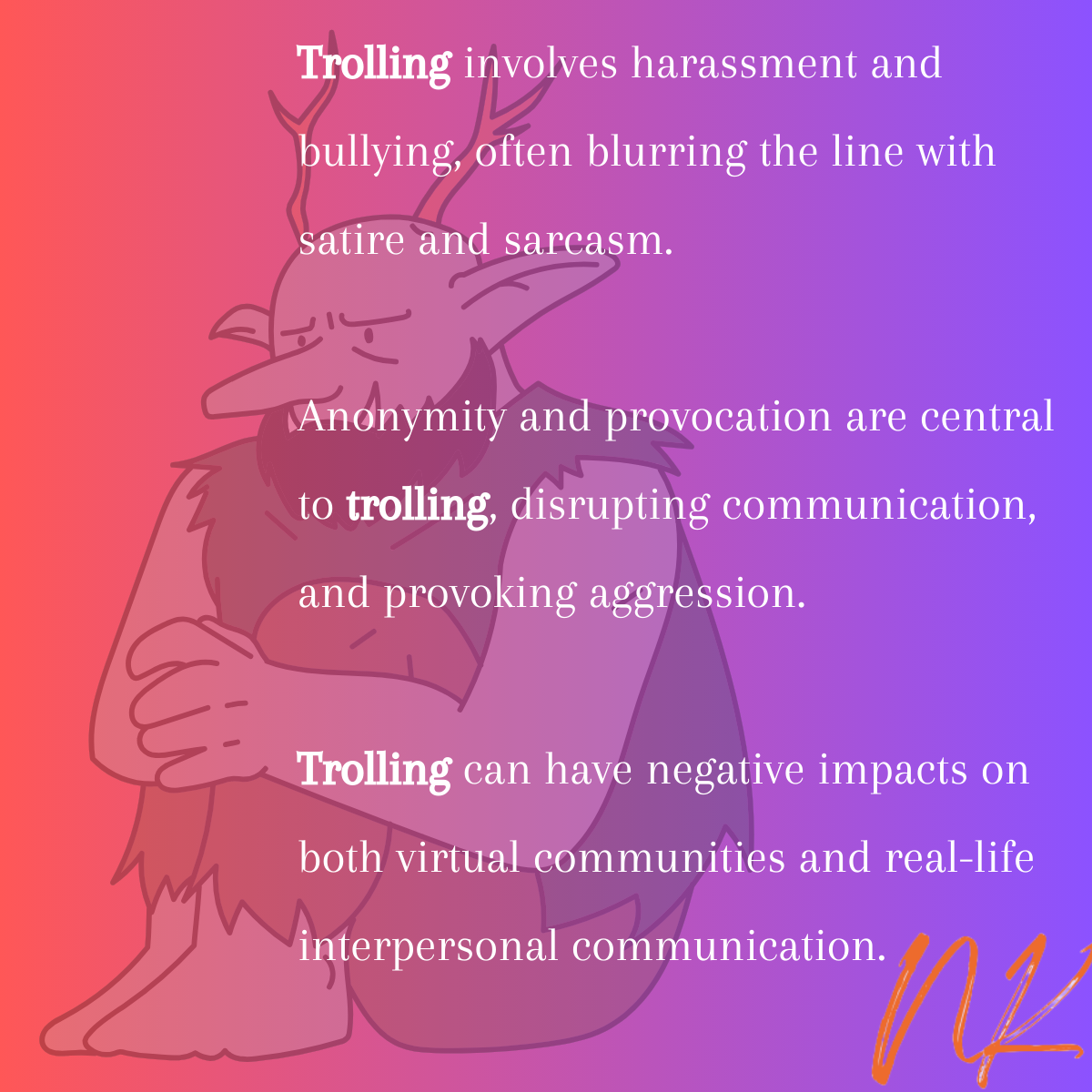The Dark Side of Trolling and Its Impact on Online Communities
As innocent as it may seem, trolling can have a dark and destructive impact on these virtual spaces. The consequences are far-reaching, from spreading hate and inciting conflicts to creating a toxic environment that deters genuine engagement. This article delves into the intricate web of trolling and explores its effects on online communities.
In connection with the development of the Internet, a phenomenon called network trolling has appeared. Trolling as a concept includes different motivations. The term "trolling" describes various forms of destructive behavior in the online environment. This can consist of humorous comments, insults, and threats. The motivations behind trolling can vary, including boredom, seeking attention, desire for revenge, pleasure, or causing harm to a community. These motivations differentiate trolling from other forms of antisocial behavior, such as cyberbullying, where the identities of the perpetrators and their intentions are usually known. Unlike spammers, trolls are not driven by financial gain; instead, creating chaos becomes their goal.
Examples of trolling include mocking and discrediting participants in discussions, instigating and escalating arguments, and spreading harmful advice and false information while pretending to be experienced users. Within the core of this blog article, trolling is considered an aggressively motivated destructive origin for committing other deviant practices such as harassment, bullying, etc. This clarification is associated with the obscurity of the modern concept of trolling, the troll's motivational attitudes, and the ensuing consequences.
The definition of internet troll has significantly widened. From satire and sarcasm to disagreement - everything now comes under the standard of trolling. There are concepts of satire, irony, and parody, which, according to the purpose of the action, do not fall under trolling, but the line between them is fragile. Satire and parody can be considered an art form. However, in a world where people increasingly receive information through social media, users do not understand that content is satirical. These types of information do not intend to harm but can be unintentionally misleading. Satire is an effective tool for engaging the audience on important topics such as politics. After all, some information jeopardizes culture, profits, politics, and the concept of truth.
Trolling is one of the critical manifestations of destructive behavior on the Internet. It gave rise to the creation of a cancel culture on the web. Cancel culture is a consequence of unethical communication, primarily due to trolling. Through their behavior, checking the personal boundaries of users, their weak points create a space of permissiveness where everyone needs to defend themselves. Initially, this communication format was built on the principle of exclusion.
In virtual communities, their group is created with its norm, in which the rest do not correspond to it by default. It is impossible to agree on "common" ethics because people are different in various living conditions, and what is considered wrongdoing in one place is permissible in another. Cancel culture is a way of resolving an aggressive situation. The basic communication principles, such as dialogue and critical problem analysis, are often lost. We see it in the case of female athletes who have been trolled for their "non-female" bodies. Therefore, one of the best solutions to destructive practices is an equal dialogue in which all voices are heard.
During Internet socialization, the user's social experience changes. The specificity of the technical properties of the Internet creates unprecedented opportunities for an individual's self-presentation free from the natural. Previously, trolling was perceived as a joke for their people, but later, trolling started to include the purposeful humiliation of a selected person or group. Trolling increases its significance and influence on the virtual community, improving new mechanisms and ways of its implementation. Trolling is a socio-psychological phenomenon that has a destructive effect on both the participants in the communication channel and the functioning of virtual communities.
Provocation and anonymity are the central mechanisms of trolling, the purpose of which is the self-presentation of the image in cyberspace. A distinctive feature of trolling is the initial focus on confrontation without expressing one's point of view. Trolling uses communication methods to disrupt productive communication to draw users into a non-constructive dialogue. When trolling, the principles of politeness and cooperation are ignored, seeking to provoke aggression and reaction in the virtual community. In trolling, people's response to subversive activities is essential.
“Be yourself; everyone else is already taken.”






